The first Final Fantasy came out in 1987. Ever since, each new game in the beloved role-playing series has pushed it to grow, change, and often subvert fans’ expectations of what it can be. Final Fantasy XVI might be the biggest test yet, in some ways harkening back to the medieval world-building the series used to be rooted in while fundamentally changing the formula in others. So what exactly makes a game a Final Fantasy, and does Final Fantasy XVI past the test?
Out June 22, it comes five years after the release of Final Fantasy XV, swapping mid-century modernist vibes for swords, armour, and dingy stone castles reminiscent of Game of Thrones. You play as a warrior named Clive on a quest for revenge, but unlike most of the prior games, there’s no turn-based dimension to combat, you only control one character the whole time rather than a larger roster of comrades, and the traditional RPG progression is streamlined into a formality that barely registers.
Story-wise, Final Fantasy XVI feels right at home in the series tradition of political conflict wrapped around mythological showdowns, while gameplay-wise it feels more like Devil May Cry with crystals, with simplistic skill trees you can max out in just a handful of hours.
So i’ll call the next protagonist Thunder and have a crystal mountain and make the combat just like a souls game and slap a Final Fantasy name on it. Would that be FF? No it wouldn’t, FF16 is a DMC 6 trying to BE a FF game. Also yes I have FF16 and to me as a old schooler gamer,…
— GingerbreadMan (@GBM5678) June 23, 2023
The results have won praise from many reviewers, but provoked others to recoil at a future in which Final Fantasy no longer feels like an RPG. This potential existential turning point has fans on Reddit and Twitter asking each other similar questions. “But for me, there’s one undeniable thing with FF that no other game can do, and that is what makes it FF,” wrote one fan on the Final Fantasy subreddit. “It’s the feeling of a truly wondrous, grander than life, granular romp through a huge beautiful world and a beat-by-beat engaging story that centres character drama within international and cosmic turmoil.” Another fan had a simpler answer: “Final Fantasy is when the currency is called gil.” The game certainly fulfils all of those requirements.
For others it’s a question of genre: It’s not Final Fantasy if it’s not an RPG, and RPGs consist of certain core tropes and mechanics. “From what I can see, the only aspect that FF16 lacks compared to other FFs is multiple playable characters, but there are plenty of single-character games that are still RPGs,” wrote a fan in a separate thread. “It still has EXP, towns, customisable skill combinations, shops.” Some players pushed back, pointing out that while these systems appear in the game on paper they’re bereft of meaningful opportunities to tinker with party composition or character builds.
Read More: The Best And Worst Parts Of Every Mainline Final Fantasy
What’s the official answer for what a Final Fantasy is? “Each main game features an exciting story, often centered around defeating a powerful enemy set on destroying the world,” reads an official description of the franchise over on the PlayStation website. “You can expect epic fantasy settings, a memorable cast of characters, magic-infused combat that usually involves calling forth summons and a few recurring elements.”
According to Square Enix Vice President Yoshinori Kitase, a veteran developer on the series since the ‘90s, the only requirement for a Final Fantasy game is that it has crystals. Final Fantasy XVI producer Naoki Yoshida told Bloomberg his definition is a game with “a great story, great game design, cutting-edge graphics, great music,” and moogles and chocobos.
I asked Kotaku staff writers and editors, from hardcore fans to people who barely ever played the games, what the name Final Fantasy means to them. Surprise, surprise, it means something different to everyone. You can continue the slideshow at the top to see how everyone’s opinions compare.
A certain unpredictability
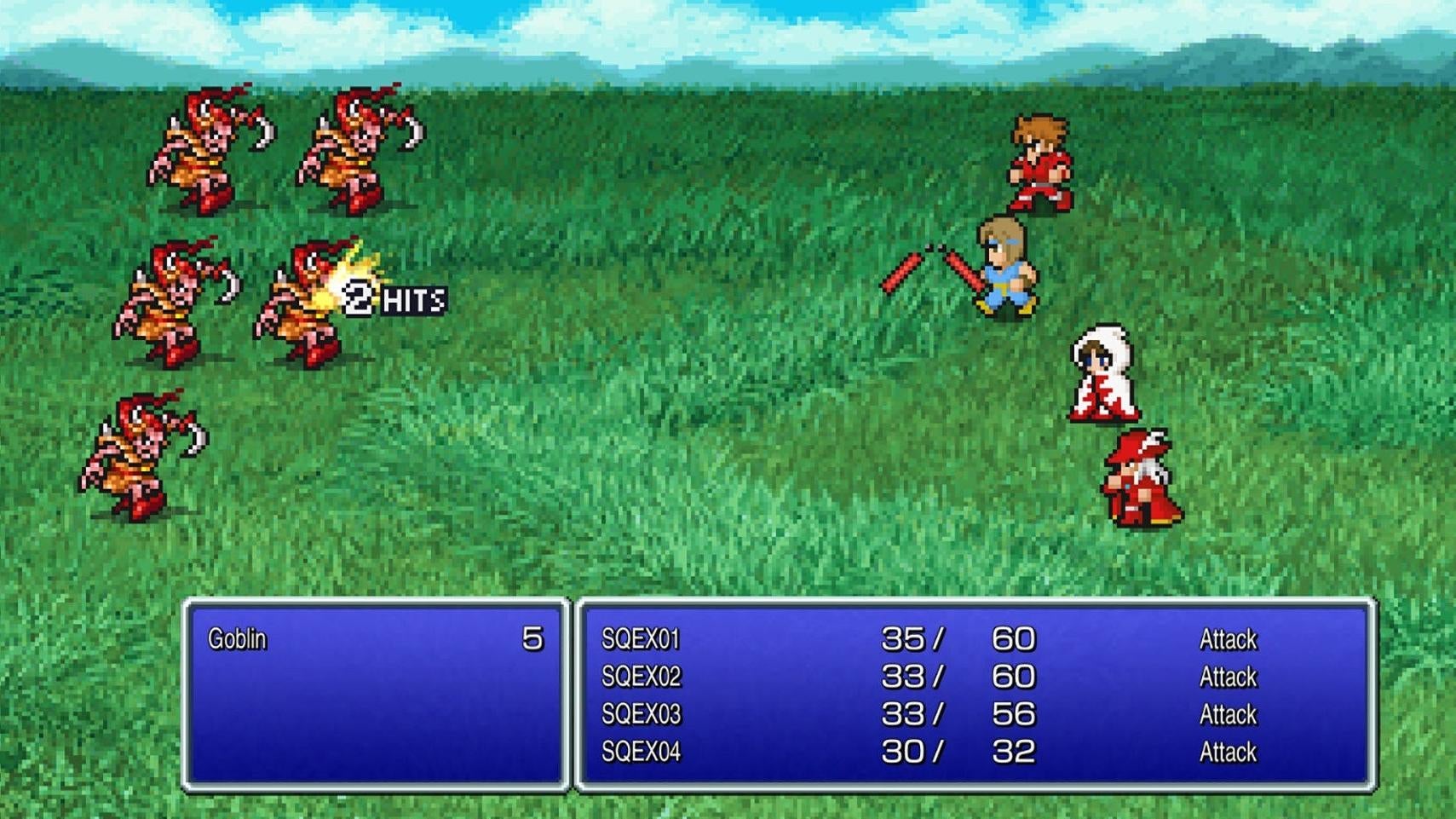
Funny Ethan broached this topic, because I’ve been pondering just this lately. At least part of the answer for me is a certain unpredictability.
My three favourite Final Fantasy games are the first, the fourth, and Final Fantasy XII International Zodiac Job System. As my faves might suggest, I haven’t especially cared for the series’ direction since the mid-’90s. But the weird thing about Final Fantasy is you never know exactly how each new one is going to turn out, so I can still remain hopeful that I might find another one that will thoroughly charm me like Final Fantasy XII IZJS did.
I had some fun with the very flawed XV, and expect I eventually will with XVI as well (I’ll be waiting for a sale). With Final Fantasy, I never know until I play. — Alexandra Hall
An unstoppable party
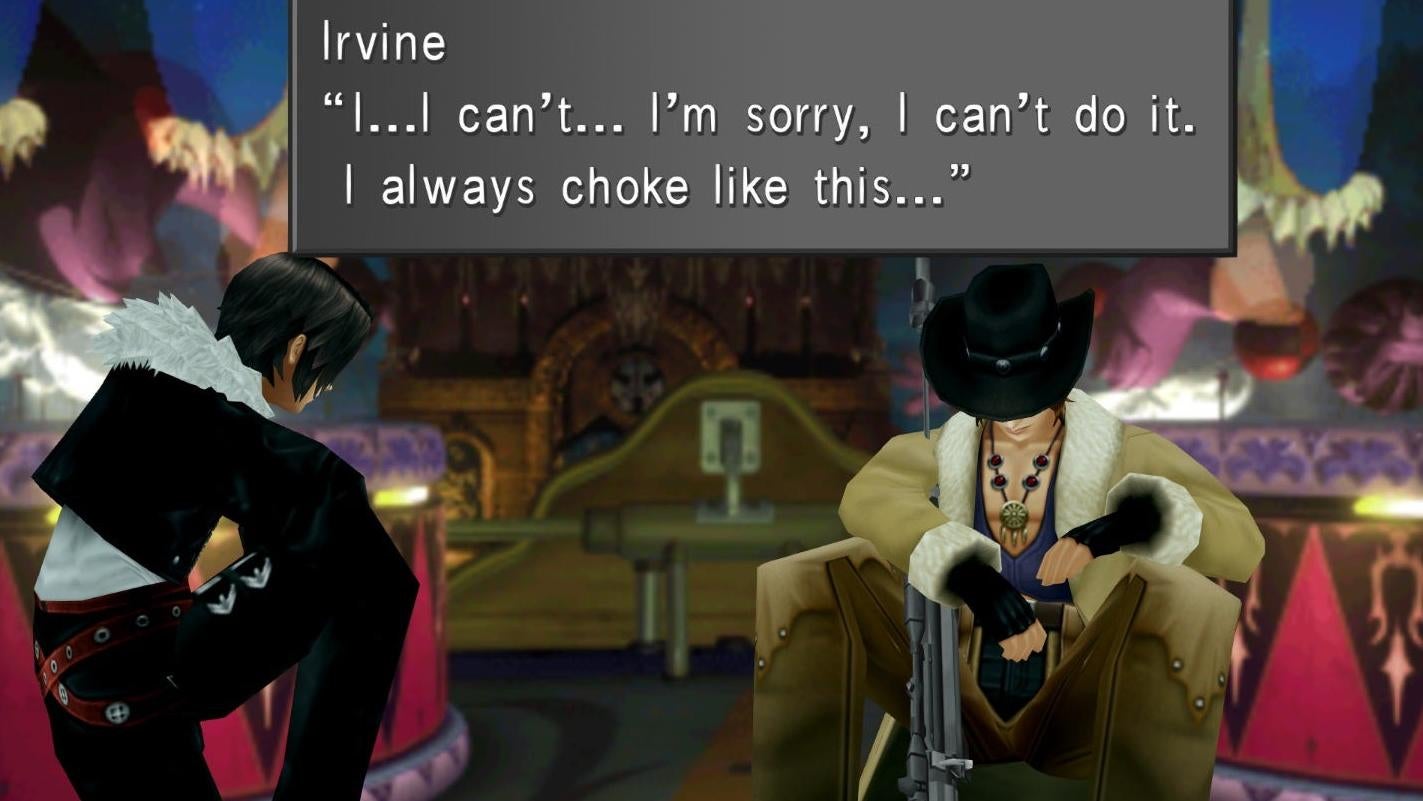
One could create a checklist for what makes a Final Fantasy game Final Fantasy: a varied cast of characters with contrasting personalities; game mechanics that encourage us to make the most of characters’ strengths to build an unstoppable party; a globe-spanning tale of epic fantasy that starts as a tale of good vs. evil, but ends up unravelling into something more surprising; and a score that’ll give you songs to enjoy for a lifetime.
Most of the series’ games have had these elements to one degree or another, but it’s not enough to just have them. They need to be working together to build a world that wins over my excitement and emotions. I need to hear the struggle of Spira and its people in “To Zanarkand” in Final Fantasy X. I need to rely on the mechanical strengths of the Guardian Forces to feel the surprise impact of their narrative cost in Final Fantasy VIII. Zidane’s optimism and encouragement of other characters needs to inspire me in Final Fantasy IX. There are many other examples, and each entry has its strengths and its weaknesses. But the best ones leave me with stories and characters I think about for years after the credits first roll. — Claire Jackson
Blondes
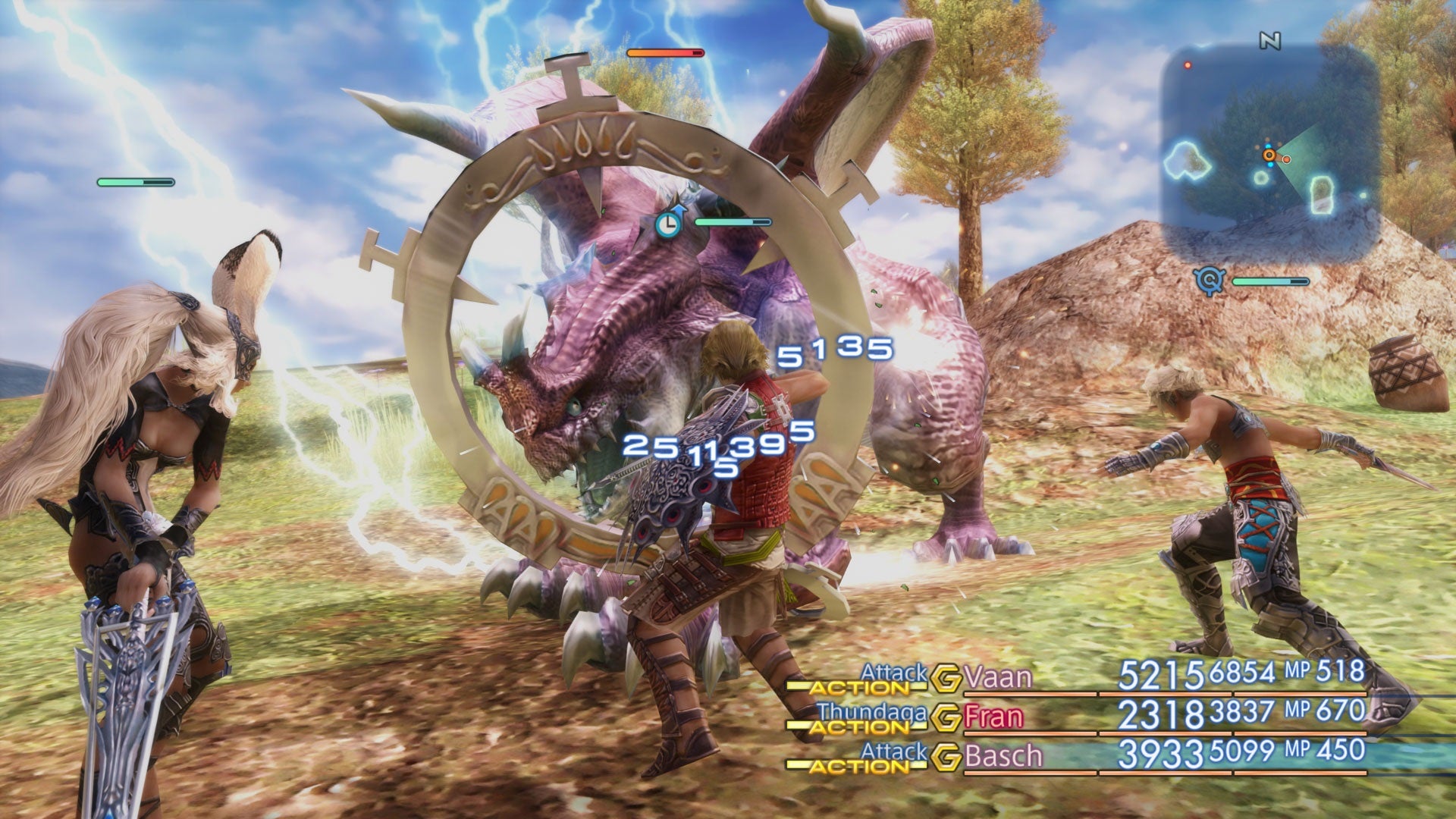
If the blonde dude and pigtail lady are in it. — Alyssa Mercante
Drama
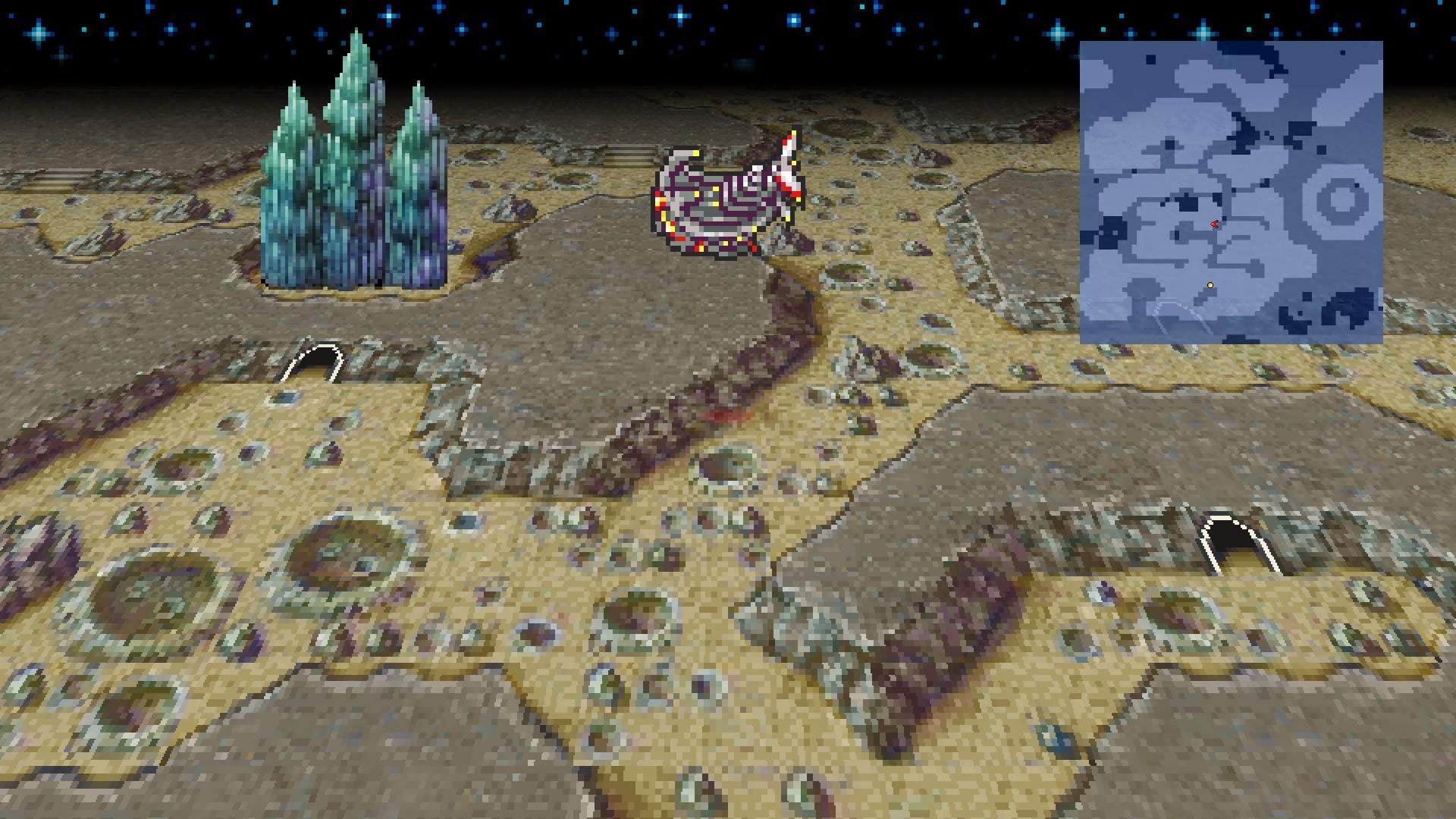
I am a Final Fantasy noob. The franchise is 12 years older than me, so I have a lot to catch up on. So far, the extent of my catch-up consists of playing 10 minutes of Final Fantasy XIV (I like the bunny race) and planning to play Final Fantasy X, but then just rewatching cutscenes on YouTube instead (it’s free and seems more efficient). Now, I’m playing Final Fantasy XVI, which may or may not be the best FF game in years, depending on who you ask. If you ask me, all a game really needs to be to be considered a “final fantasy” is magic and overwrought drama. Having a twink protagonist helps, too. — Ashley Bardhan
Devastated worlds
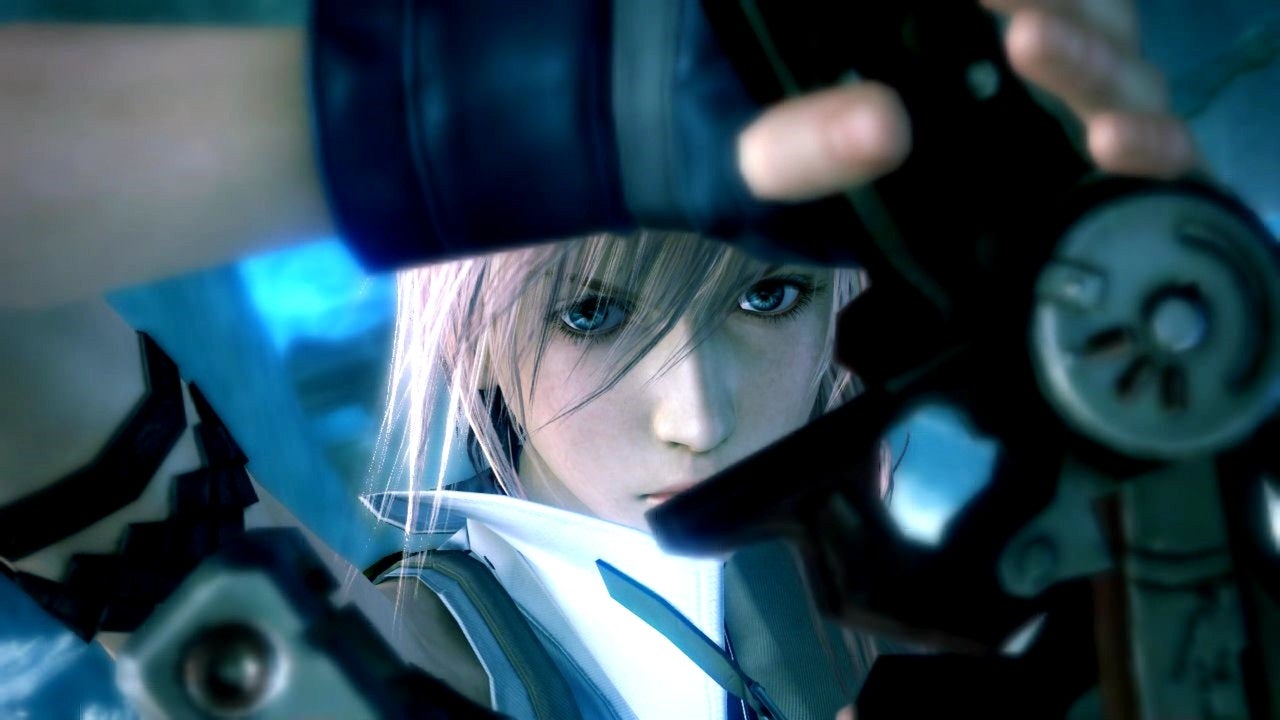
There are a few things that make a Final Fantasy game a Final Fantasy game: an emo-arse protagonist with a tragic past, a furry companion that joins your party at some point during the campaign, a maniacal villain that’s as terrifying as they are hot, and Cid.
But above all, what truly signals a Final Fantasy game is the world the characters inhabit. These games have settings that are just as much a part of the character roster as the playable characters themselves. Gaia from FFVII, FFX’s Spira, Eos from FFXV, even FFXVI’s Valisthea — every world, whether its name is shared (like Gaia, which is also in FFIX) or original, is distinct and memorable. It’s hard to picture a Final Fantasy game without an iconic, politically distraught, beautifully devastated world, which to me is what really makes these games. — Levi Winslow
Cid
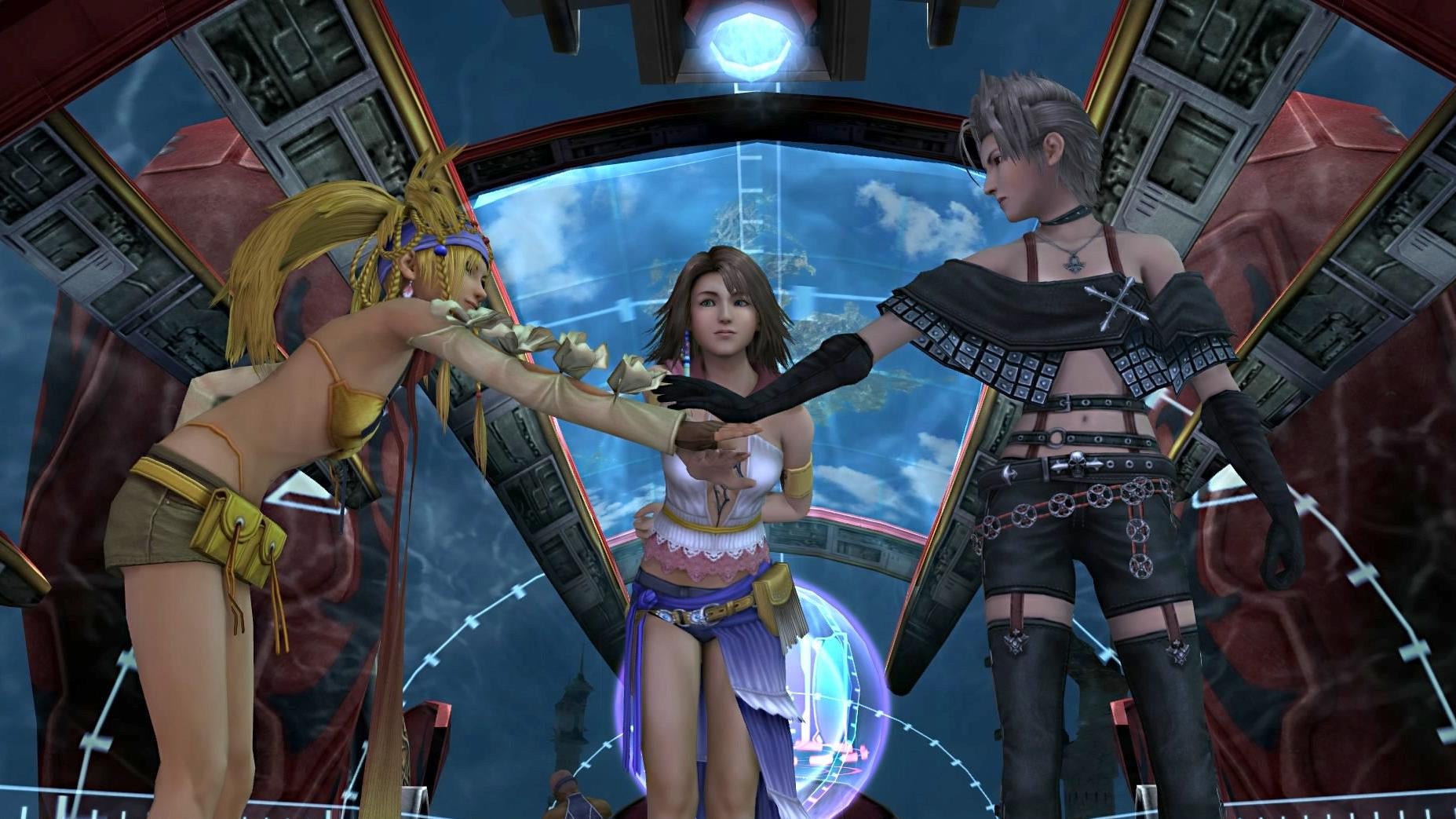
We all spend a lot of time arguing about what makes a Final Fantasy game, as if the series didn’t immediately establish right out the gate that it was about reinvention and not being beholden to a specific framework. But even knowing the series’ proclivity for change, it still would’ve been hard to imagine back in the day that the 16th chapter would end up being a straight-up action game with only modest RPG elements.
But whether you’re happy with the direction the series has gone (which is a valid thing to feel, and I wrestle with these feelings as well), getting hung up on semantics feels like a futile effort when you could simply play other things. Want something that harkens to the classic turn-based fantasy stylings of the original game? Octopath Traveller II is right there. What makes a Final Fantasy? Cid. Is he there? Then it’s a Final Fantasy game. — Kenneth Shepard
The grind
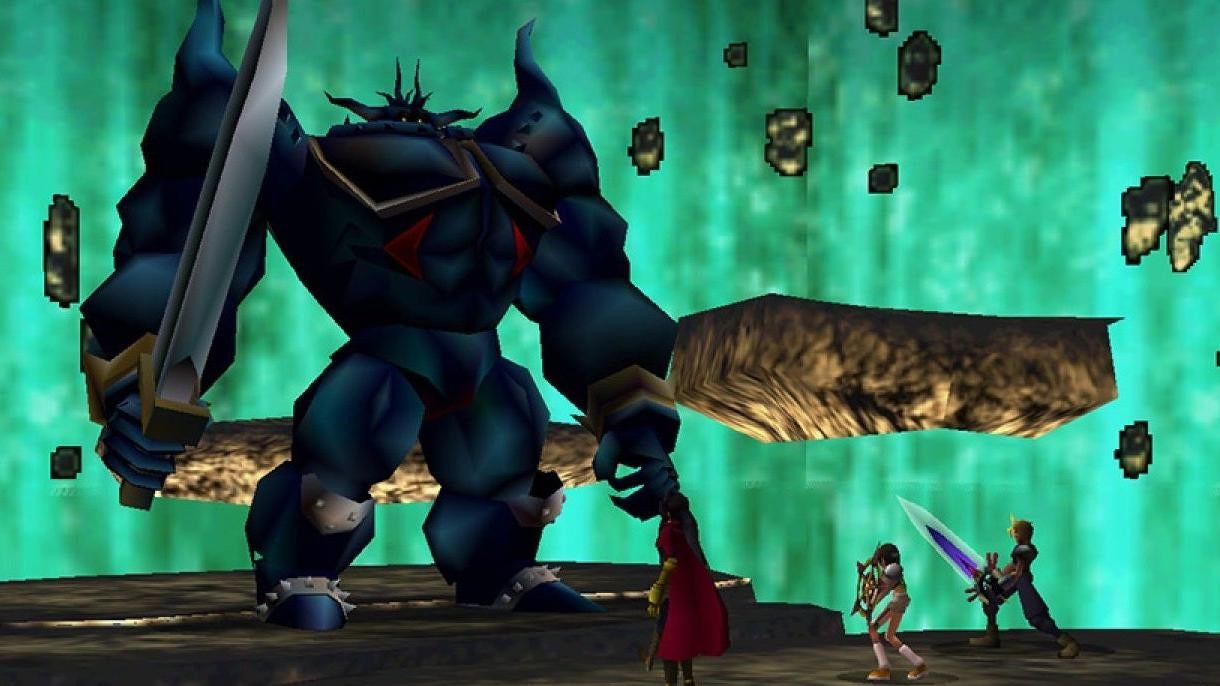
I don’t need moogles and chocobos, or even crystals and summons. I need magic spells, abilities that get more powerful the more you grind, and equipment that makes you stronger, especially if it’s found off the beaten path. Keep me on rails as much as you like, but occasionally let me lose on a small town full of side-quests and fields of constantly refilling monsters to bash. Some friends will become enemies, some enemies will become friends, and if I’m really lucky at least one of them will suffer from memory loss or even be a clone. Most of all, though, the music just needs to kick arse and send me down an existential rabbit hole of past, present, and future whenever it pops back on five, 10, or even 30 years later. — Ethan Gach
Those are our takes. Do you think differently? What makes a Final Fantasy game a Final Fantasy to you?
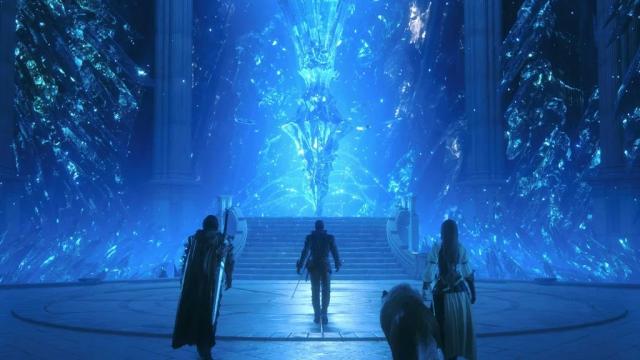
Leave a Reply